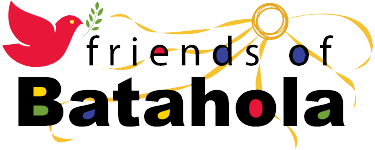

Silvia Ballesteros, a graduate of the CCBN’s General Cooking, International Cooking, Cake Decorating, and Pastry classes, now has her own bakery with two other Center graduates. Silvia loved her experience at the CCBN, and she tells anyone who will listen where she learned her trade. When she started out in Johanna Ocampo’s General Cooking class, she didn’t think her cooking would turn out right. But Johanna kept pushing her and telling her she could do it, and she didn’t give up. After graduating from so many courses, Silvia was set on using her skills to better her life. Without any start-up capital, Silvia, along with two other CCBN graduates, brought everything they needed from home, from pots and pans to two ovens, and set-up shop in a small space they found to rent for $100 a month. While all the other places they looked at were more expensive, this amount is still quite hefty for a group starting from scratch. According to Silvia, “You’ve got to like cooking to do this, because it takes a lot of sacrifice and love. It’s a big risk, but we have faith that we will get ahead. We’re very proud of ourselves. And on a personal level,” Silvia says, “I used to cry every day. But now I leave my personal problems at home and focus on the bakery’s problems. One’s emotional state affects both cake and frosting, and you can’t work under stress. I’ve been able to get off of sleeping pills, and I feel much less depressed now.”
The poor quality of Nicaragua’s education system contributes to the lack of economic opportunities for women and men. Many simply do not have the technical skills needed to compete for the few formal-sector jobs available. And for young people in school, there are few opportunities for healthy recreation. The school system does not have funds to provide extra-curricular activities that could teach coordination, teamwork, self-confidence and creativity.
The Education and Training Program’s goal is to increase economic independence and individual dignities by helping students develop their skills and talents. Course offerings develop the basic, technical, artistic and human abilities of students from marginalized neighborhoods, with a special focus on helping women in particular improve their quality of life. Over 900 students participate each year in courses that are organized into three categories: basic adult education, job training, and arts education.
Basic Adult Education courses give adult and young adult students the opportunity to finish their primary education (grades 1-6) in three years. This program consists of 4 courses: Basic Literacy and Levels I, II, and III. Graduates receive their diploma from the national Ministry of Education.
To develop self-esteem and provide skills that facilitate entry into the job market, the CCBN offers a program of technical-vocational training. These career-oriented courses certified by INATEC (the National Technical Institute), the Nicaragua government agency that oversees the quality of technical education. The CCBN constantly revises the course offering to respond to changes in the economy, labor market and community priorities. The current program of study includes:
- Baking and pastrymaking
- Basic and International Cooking
- Cake decorating
- Cashiering
- Communicative English
- Computer Operator
- Cosmetology and Hairstyling
- Handicrafts
- Natural medicine
- Sewing/tailoring
Finally, the CCBN offers 8 courses in performing and visual arts, including drawing and painting, drama, music and dance classes to help students build confidence and discover new talents, while giving them a safe harbor from the poverty and violence of their environment. While most courses are geared toward children and youth, a few courses are also offered for adults. Younger students can go on to participate in the CCBN’s performing arts groups to share their talents with the wider community.
The CCBN charges symbolic fees for most classes to help students become invested in their education and to cover about 40% of course expenses. However, the economic crisis in Nicaragua makes it difficult for some people to afford even the modest class tuition. For over 100 students, scholarships make their studies possible. Course scholarship recipients are expected to fulfill social service hours, such as assisting their teacher or volunteering in the CCBN library.
Get involved with classes by sponsoring a student or teacher, sending needed materials or praying for students.
